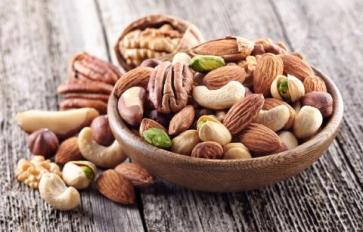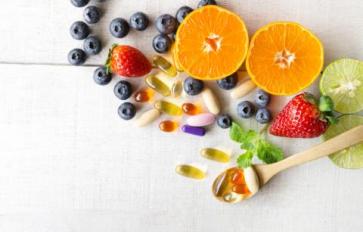
Popping pills at the behest of Big Pharma profits is a poor substitute for healthy dietary choices. Taking drugs for avoidable lifestyle diseases is hardly a path to good health. Cholesterol is a case in point.
Unhealthy diet and inadequate exercise usually lead to high cholesterol levels. Excessive cholesterol causes fatty deposits to accumulate on arteries and blood vessels, which restricts blood flow, leading to high blood pressure – a precursor to heart disease and strokes. Young adults and even children can have high cholesterol.
Big Pharma profits from drug sales, not by promoting healthy diets. Sales of cholesterol-lowering drugs are projected to total $24.6 billion annually by 2019, according to Visiongain Ltd., a London-based market research firm.
It seems moderation and balance are the biggest problems for people with high cholesterol. A consensus is emerging that eating high-fat foods is not necessarily all bad, but that people simply eat too much of them, while not enough of other healthy foods. Some contrarian researchers believe dangers associated with cholesterol are overblown.
Research shows that eating enough foods that naturally lower cholesterol is as effective as taking cholesterol-lowering drugs. Many plants contain substances that lower cholesterol, and high-fiber foods that promote bacterial fermentation in the gut can lower cholesterol, according to medical research compiled in Endotext.
Foods known to reduce cholesterol are recommended by the American Heart Association, American Society for Nutrition, Cleveland Clinic and by numerous scientific studies. The Mediterranean diet, featuring lots of fresh fruits and vegetables, olive oil and fish, is considered the healthiest. When choosing meats, loin- and round cuts are the least fatty.
Many plant-based foods can help lower cholesterol, some more than others, but there are too many to list. In general, these include whole grains, legumes, nuts and seeds. Some superfoods known for lowering cholesterol include avocado, bay leaves, dark chocolate, garlic, green tea, oatmeal, red wine and walnuts.
Diet and nutrition are not emphasized as much as drugs in corporate medicine. The trouble is that so much medical research is funded by Big Pharma, which not surprisingly recommends treatments using pharmaceutical products. Ayurveda, by comparison, is not profit-driven and it shows more concern about diet and maintaining life balance in all areas.
Corporate medicine is as much political as it is big business for insurance companies, doctors and hospitals, in addition to Big Pharma. A boom in cholesterol-lowering drug sales in recent years has been attributed to a federal panel’s recommendations that lowered the level of cholesterol considered healthy, which—surprise—included individuals with financial ties to pharmaceutical companies, according to the Health Research Group of Public Citizen.
There’s good reason to think about relying more on dietary choice than cholesterol-lowering drugs. Some scientific journals such as Food & Function have been reporting mounting evidence of nasty cholesterol-lowering drug side effects, contributing to kidney disease and even cardiovascular disease! Why take a chance when you can lower your cholesterol naturally, with food?








